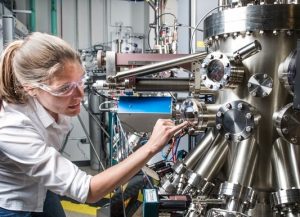Home Elevator,Household Elevator,Home Lifts,Elevator Home Residential APSL ELEVATOR TECHNOLOGY(SUZHOU) CO.,LTD. , https://www.fujiapsl.com
Solving The Cold Hard Truth of Cryogenic Gasket Failures
Cryogenic service poses unique challenges for any equipment, particularly for gaskets. When temperatures fluctuate between ambient and cryogenic levels, the expansion and contraction can compromise the sealing mechanisms of gaskets. This newsletter addresses some of the common issues faced by gaskets in cryogenic applications.

Cryogenic temperatures can significantly impact gaskets. They reduce the ductility of metallic, semi-metallic, and polymer gaskets while increasing their hardness and brittleness. These changes can lead to breakage, improper sealing, and ultimately, failure.

Spiral wound, camprofile, and other semi-metallic gaskets aren’t ideally suited for cryogenic service. At cryogenic temperatures, these gaskets lose their flexibility due to reduced ductility and increased hardness. This loss of flexibility compromises their ability to maintain a leak-tight seal, especially under fluctuating conditions.
Extreme Bolt’s Revoseal gaskets, however, are specifically designed to excel in cryogenic environments. Their construction takes into account the unique demands of cryogenic service. Revoseal gaskets are engineered to function much like a spring, even at extremely low temperatures. This enhances their flexural properties, allowing them to adapt dynamically to expanding and contracting joints. Additionally, Revoseal gaskets can be made from nickel alloys to boost ductility. The design of Revoseal gaskets, featuring a metal-to-metal seal combined with a PTFE/graphite soft seal, requires less sealing force compared to conventional graphite or spiral wound gaskets.

In steady-state cryogenic service, Revoseal gaskets outlast traditional all-metal or spiral wound gaskets by a significant margin. They also offer an order of magnitude lower leak rates compared to other metallic seal designs such as camprofile or spiral wound gaskets. When conditions are not stable—such as significant fluctuations in pressure, vacuum, or temperature—standard metallic gaskets may crack or fail to adjust properly, leading to high leak rates. In contrast, Revoseal gaskets consistently deliver superior performance under these challenging conditions.

**Revoseal Case Study: Anorganic Chemical Production**
This case study focuses on the production of polychlorinated fluoridic hydrocarbonates, commonly used as refrigerant fluids and pharmaceutical propellants. The process involves media such as HF, CH, oxygen, and R134a/R133a, operating at temperatures ranging from -200°C to 430°C and pressures from vacuum to 160 bar.
**Benefits Achieved with Revoseal ECO+ Gaskets**
By replacing traditional spiral wound gaskets with Revoseal ECO+ gaskets, the company achieved a remarkable improvement in gasket longevity. While traditional spiral wound gaskets lasted only 3-9 months, the Revoseal ECO+ gaskets extended the lifetime to 5 years. This change allowed the company to meet its annual maintenance goals without experiencing unexpected downtime, ensuring smooth operations and reducing maintenance costs.
This case highlights how Revoseal gaskets can revolutionize performance in cryogenic environments, providing reliability and efficiency that traditional gaskets simply cannot match.